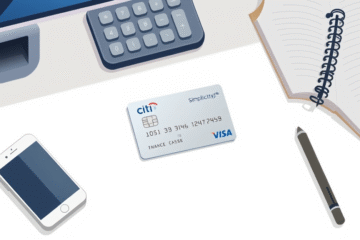Choosing the Best Credit Card for Your Profile
Credit Card selection is a crucial aspect of personal finance that can greatly influence your financial health.
In this article, we will explore the various factors that affect your credit card choice, from credit scores to spending habits.
By understanding your unique profile and the benefits different cards offer, you can make an informed decision that aligns with your financial goals and lifestyle preferences.
Whether you’re interested in cash back rewards, travel perks, or building credit, we’ve got you covered in finding the best option for you.
Understanding Your Financial Profile
Selecting the best credit card starts with understanding your personal financial profile.
Consider credit score, which impacts the types of cards available to you.
A high score may enable access to cards with robust travel rewards or cash back, like NerdWallet’s recommended cards.
Meanwhile, a lower score might lead to options primarily focused on building or rebuilding credit without high-interest penalties.
Your spending habits are crucial in choosing a suitable card, as they determine the kind of rewards system that aligns with your lifestyle.
Those who travel frequently might benefit from cards offering airline miles or hotel points, while everyday expenses may earn more with cash-back cards.
By analyzing your usual expenses, assess which card will maximize returns.
Beyond rewards, evaluate factors like annual fees and credit limits.
Understand these can greatly affect your cost-benefit analysis.
While some cards have no annual fees, others may justify higher fees with extensive perks.
It is essential to reflect on income stability, and calculate your debt-to-income ratio to avoid financial strain.
Prioritize lifestyle and financial goals, ensuring the card supports and enhances these areas.
Consider these factors earnestly before applying to maximize benefits and minimize excess costs.
Credit Score and Card Eligibility
Credit scores serve as a critical determinant of which credit card products you can access.
Different score ranges unlock distinct types of cards, making credit awareness essential.
Let’s delve deeper into the relation between credit scores and card eligibility.
If your score falls within the Poor range (300–579), financial institutions typically make secured credit cards available.
These cards, such as the Discover Secured Credit Card, request a refundable deposit to help build your credit.
For those with Fair credit (580–669), options widen slightly to include unsecured cards with lower limits.
Moving into a Good score (670–739), you may see more lucrative offerings with better rewards and higher limits.
Those unprecedented benefits, however, come within reach once you attain Excellent credit (740–850).
Premium cards like the Chase Sapphire Preferred® become options, offering top-tier rewards and travel perks.
| Score | Likely Offers |
|---|---|
| Poor (300–579) | Secured cards |
| Fair (580–669) | Low-limit unsecured cards |
| Good (670–739) | Better rewards and limits |
| Excellent (740–850) | Premium rewards cards |
The credit score often acts as a gateway, dictating which financial products you are offered and how beneficial they are.
Understanding this relationship empowers you to choose credit cards that align with your financial goals.
Keep tracking, managing your financial activities responsibly to reach your ideal credit level, thus opening doors to better opportunities.
Matching Cards to Spending Habits
Understanding your monthly spending habits is crucial for selecting the right credit card that maximizes your rewards.
If you regularly dine out or travel, your ideal card should offer significant cash back rewards or travel perks.
Analyzing where your money most frequently goes allows you to pinpoint which cards provide the most value.
For instance, cards that offer bonuses on categories where you spend the most can substantially enhance your earnings.
Ensuring your card aligns with your financial habits encourages seamless savings.
Some credit cards specifically cater to particular spending categories, offering higher rewards rates.
Consider your top spending areas:
- Dining – opt for cards with elevated cash back on restaurants
- Groceries – higher cash-back rates for supermarket purchases
- Travel – look for cards offering travel perks such as points or miles
- Gas – cards that provide cash back at gas stations
For example, you might visit a site like NerdWallet’s Guide for Credit Cards to explore optimal card options tailored to your lifestyle.
By pairing your primary expenses with the right card, you can effectively boost your earnings through specialized reward programs.
Leveraging these insights ensures you earn more from your daily transactions, turning your spending into rewarding saving opportunities.
Weighing Fees Against Perks
When contemplating a credit card option, the balancing act between annual fees and associated perks demands attention.
High fees often come with substantial rewards, making them appealing to frequent travelers or big spenders.
If you’re inclined to travel or enjoy dining out, cards offering lounge access or significant travel credits may easily offset their hefty fees.
Analyze your travel habits alongside the credit card perks to ensure you’re not paying for benefits you will underutilize.
Another pivotal consideration is the foreign transaction fees.
Global travelers should favor cards that waive this fee, translating into real savings.
Evaluating the interest rates alongside these fees is fundamental if you occasionally carry a balance.
The perks must justify any added costs, especially if you leverage perks like large sign-up bonuses.
For those with moderate spending habits, a no-fee card might be more appropriate.
If the card offers cash back or the occasional travel discount, you can accrue savings without the yearly cost.
To aid your decision-making, consider exploring guides such as the Forbes guide on annual fees for deeper insights into fees against rewards.
Building Credit with Secured Cards
Secured credit cards present a strategic way for individuals with limited or poor credit history to build credit effectively.
They require a secured deposit, which typically determines your credit line.
This makes them accessible to those who might otherwise struggle to gain approval for traditional credit cards.
Using these cards offers the opportunity to establish a positive payment history by ensuring you make payments on time, a crucial factor in the credit-building process.
A significant benefit is their ability to help you manage and improve credit scores.
According to Experian, utilizing a secured card under the right conditions can significantly improve your credit history.
It’s important to keep your balances low, generally under 30% of your available credit, to demonstrate responsible credit usage.
In conclusion, responsibly managing a secured credit card by maintaining a low credit utilization rate and committing to credit building through on-time payments can pave the way to transitioning to an unsecured credit card in the future.
Aligning Card Choice with Long-Term Goals
Goal alignment is crucial when choosing a credit card as it ensures that the card selected truly supports your long-term financial planning.
Whether it’s saving on travel, building credit, or earning cash back for emergencies, aligning credit card choice with personal objectives helps in optimizing financial benefits.
For savers aiming to reduce travel expenses, cards like the Chase Sapphire Preferred® could offer bonus travel rewards benefiting frequent travelers.
According to the CFPB, 2024, “Choosing a card that aligns with personal financial goals can be a powerful tool in effective financial management.” This reinforces the idea that careful card selection can complement broader financial strategies.
Responsible use of credit cards, including timely payment and limit management, paves the way for improved credit scores.
Regularly reviewing card benefits to ensure they continue to meet evolving goals is equally vital.
The following pairings illustrate optimized card choices:
- Emergency savings – flat-rate cash-back card
- Travel rewards – travel-focused card
- Building credit – secured credit card like Discover it® Secured
Strategically selecting and utilizing credit cards can significantly support achieving financial aspirations.
Credit Card choices can significantly impact your financial journey.
By evaluating your personal needs and preferences, you can select a card that not only improves your financial well-being but also complements your lifestyle.



0 Comments